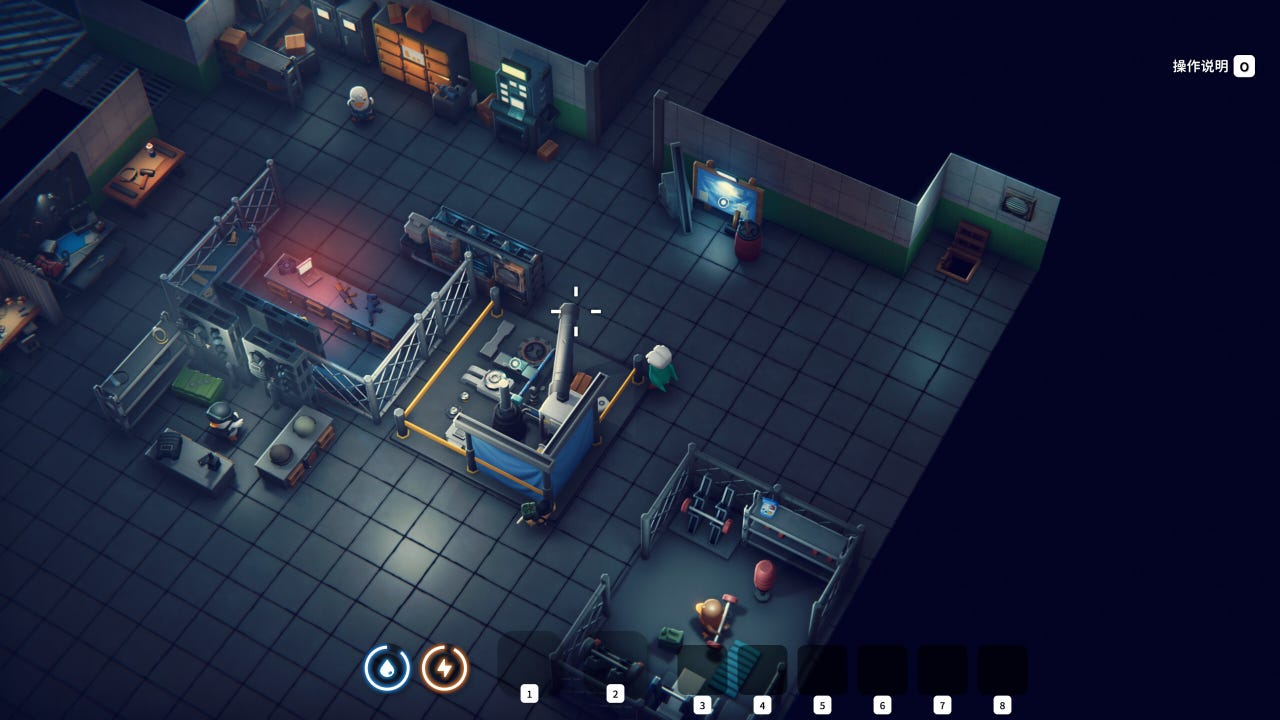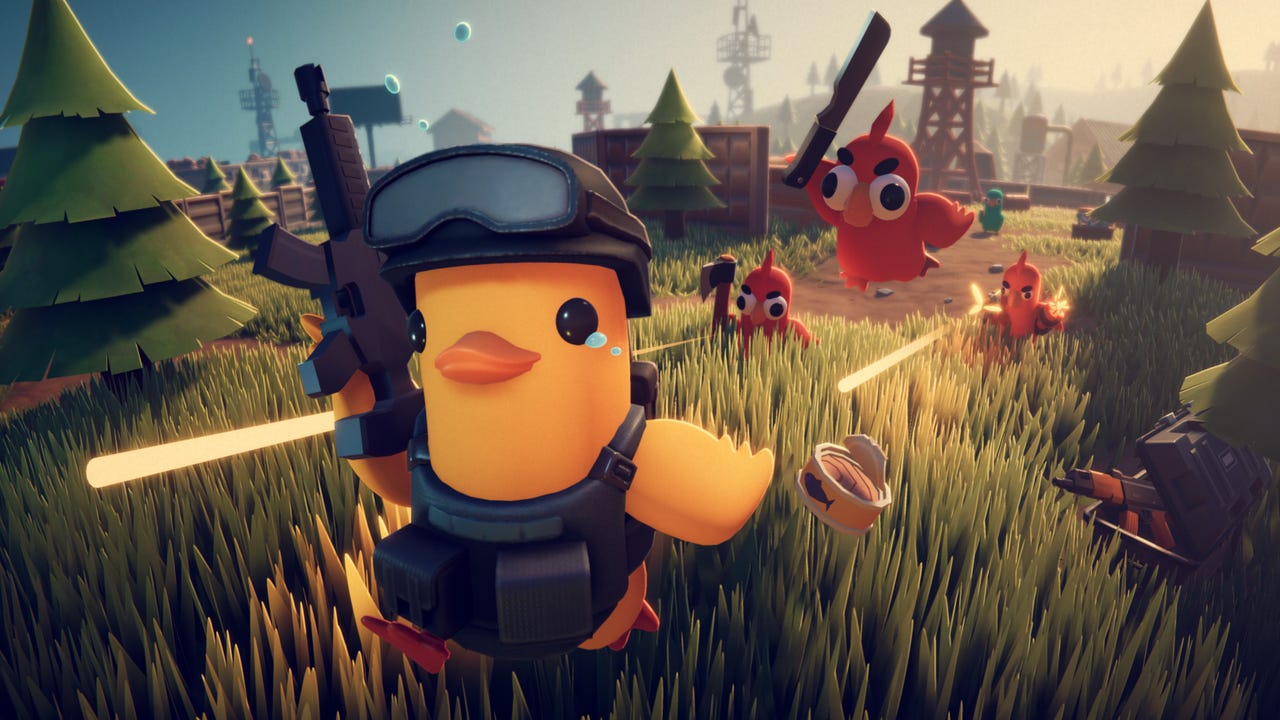How Escape from Duckov topped the Steam charts
A duck-themed reimagining of the extraction shooter genre proved to be a winning formula for Escape from Duckov.
Escape from Tarkov, which has been in early access since 2017 but will get its full release in November, is a gritty, grounded tactical shooter set in fictional Russia, in which players loot and fight to survive. If you've ever wondered what the game would be like if the soldiers were ducks instead of people, you're not alone. Team Soda, a development team of Chinese company Bilibili, released Escape from Duckov on Oct.16.
It's not a multiplayer game like Escape from Tarkov, instead reimagining the "extraction shooter" genre as a "PvE" single-player game. It may be easy to write off the game as a joke or novelty: The juxtaposition of the cute ducklings against the backdrop of a game like Escape from Tarkov is hard to imagine working. But it has the hardcore survival elements for a surprisingly deep experience.
Escape from Duckov works because Team Soda isn't necessarily looking to fit the ducks into a realistic world, but building out its own brutal but silly environment. It works. Escape from Duckov reached 500,000 players on Oct. 19, then doubled that in days, bringing in more than a million players by Oct. 22, Team Soda announced on Oct. 22. On Oct. 28, Team Soda announced it'd doubled its playerbase once again—now two million players.

"It’s all about that PvE vibe and accessibility for such a hardcore genre," Tongpeng Chen, Bilibili's head of global publishing, said. "Players choose the difficulty and experience they would like to have in the game, venture into the wild, gather resources, then return to base to level up, build stuff, and complete missions."
"That satisfying loop of “loot, upgrade, repeat” gives steady positive feedback—way more relaxing than the stress of PVP shooters." It lets players truly lose themselves in the world of Duckov. Per Jeff’s words, players are 'living' in Duckov’s world."
Tongpeng Chen told Game Developer that a team of four people make up developer Team Soda, led by producer Jeff Chen. Jeff Chen worked at Bilibili for seven years, and the rest of the team worked together previously on Soda Crisis and Snake Force. "We initially thought selling 300K copies would be decent, 500K would’ve been a dream," Tongpen Chen said. "The current number is absolutely mind-blowing and encouraging for our team."
Tongpeng Chen said there's some luck to the game's success, but that Jeff Chen's dedication to the genre means he's an expert—he's played more than 1,400 hours of Escape from Tarkov.
"Jeff noticed that in Tarkov, a lot of players really enjoy the PvE experience that is also the essence of [Escape from Tarkov]—not just combat, but also the progression and exploration parts," Tongpeng Chen said.

Image via Team Soda/bilibili.
"Still, that PvE craving wasn’t really being met these days. So our dev team put themselves in the players' shoes and focused on what they truly wanted. What players value in the game shouldn't just be money or high-value collectibles. Sometimes, bringing back a very mundane, everyday item determines the success or failure of a quest or a key progression milestone. Even if a player fails an extraction and loses valuable gear, they still have the motivation to go in again."
Escape from Duckov surpassed 300,000 concurrent players on Oct. 27, a number that was reached after steadily climbing for days. These Steam heights pushed Escape from Duckov past games like Battlefield 6, Apex: Legends, and Grand Theft Auto 5, which are mainstays on the top games chart on Steam.
The game peaks at prime game-playing hours in countries like China, where the game was developed, and slips back down to around 40,000 players during standard United States daytime hours. It suggests that Escape from Duckov's core audience—at least at this point—is international.
Escape from Duckov was announced by Team Soda, then a team of four, on Jan. 22. It debuted with a demo version of the game that ran for two weeks, starting a day later, on Jan. 23. It quickly hit with players, and earned a spot as the top demo on the Steam platform during that time period. In the months that followed, Team Soda continued to host intermittent demos to test new maps and features between frequent developer diary entries on its Steam page.
Duckov publisher Bilibili began life as a social media website
Bilibili began primarily as a Chinese social media and video sharing website, but it's also a live streaming platform. It began publishing games on the platform around 2014, but released its first internally developed game in 2017, according to financial filings.
A huge part of Bilibili's games business is in publishing third-party games on its platform—some with exclusive licenses and some without. Bilibili, for instance, got publishing rights for a Chinese version of Fall Guys: Ultimate Knockout in 2020; that version is called Jelly Bean: Ultimate Knockout. In April 2020, Sony acquired a minority stake in Bilibili for $400 million, valuing the company at a whopping $8 billion to collaborate on "anime and mobile games," according to a Variety report.
In 2021, Bilibili released Dead Cells as a mobile game in China; by 2023, it had passed five million copies sold in the region. In August 2025, ahead of Escape from Duckov's October release, Bilibili reported $225.1 million in mobile game revenue, a 60 percent increase year-over-year. That revenue is attributed to an "exclusively licensed game," San Guo: Mou Ding Tian Xia, the company said in its August financial filing.
Azure Lane, alternate reality World War 2 game in which warships are also cute girls (developed by Shanghai Manjuu, Xiamen Yongshi), is one of Bilibili's earlier titles and still a financial driver for the company. Fate/Grand Order, of which Bilibili published a Chinese version, is another. Both are still generating revenue for the company, despite being nearly 10 years old.
The company's seen great success in the Chinese market, but Escape from Duckov is Bilibili's "first global title," Tongpeng Chen said on LinkedIn. For a studio that's been set on the mobile market, the success of Escape from Duckov—a PC-only game that's both relatively small and somewhat irreverant—is surprising. "It truly signals a bright future for Bilibili’s first- and second-party gaming initiatives," he said.


